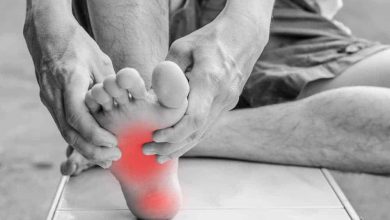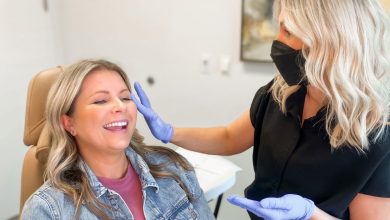How Long Do Drug Testing Results Take In Urgent Care Clinic?

A drug test detects the signs of one or more illegal drugs in your urine, blood, saliva, hair, or sweat. The main of a drug test is to see drug use and misuse:
- Illegal use of drugs like cocaine or club drugs
- Using prescription drugs improperly means using them in a manner or for a purpose other than those recommended by your doctor. Examples of drug misuse typically include using prescription pain relievers to relax or using someone’s prescription.
This article will highlight how long drug testing results take in urgent care clinics. Read on.
What Do Urgent Care Drug Tests Commonly Test For?
A drug test urgent care for a single drug or a group of drugs. Here are the common types of drugs tests conducted at urgent care:
- Alcohol
- Amphetamines, such as methamphetamine
- Barbiturates, such as phenobarbital and secobarbital
- Cocaine
- Marijuana
- Opioids and opiates like heroin, codeine, oxycodone, morphine, hydrocodone, and fentanyl
- Steroids
- PCP.
Most drug tests use urine samples. These tests detect signs of drugs hours to a few days or more before the test. How long the drug stays in your body depends on the following:
- The drug type
- The amount you used
- How long have you used it before the test
- How long your body reacts to the test
Other names for drug test at urgent care are; drug screen, drug test, drugs of abuse testing, substance abuse testing, toxicology screen, tox screen, and sports doping tests.
What Is Drug Testing Used For?
Drug testing determines whether you have been using or misusing one or more drugs. However, these tests cannot diagnose a drug use disorder. A drug test might be used for several purposes, including:
- Employment: Most employers require you to screen for drugs before hiring you. Once hired, they might test to check for on-the-job drug use. Suppose you were involved in a work accident; you will be screened to determine if drugs or alcohol were involved.
- Sports: professionals or other athletes get tested for drugs used to improve performance, like steroids that help build muscle.
- Drug treatment: drug testing might be used to regulate treatments in programs for drug or alcohol use issues.
- Legal evidence: urgent care drug testing might be a part of criminal or motor vehicle accident investigation. Drug screening could be ordered as part of a court case.
- Regulation of the Misuse of Prescription Drugs: suppose your healthcare provider prescribes a medicine that can be addictive, like an opioid, for long-term pain; they might order a drug test to ensure you are correctly taking your medication.
The testing might be planned ahead of time or conducted randomly without notice.
Why Is Urgent Care A Drug Test?
You might be requested to go for drug screening for a job, to be in a particular organized sport, or as a part of a police investigation or a court case. These tests can also be conducted in a hospital emergency room if the patient displays signs of a possible drug overdose.
What Happens During A Drug Test?
Drug testing can be conducted in several locations, such as labs, hospitals, drug treatment centers, and drug tests at urgent care and workplaces. Most drug tests require urine samples, and you will be instructed on how to collect your sample. Sometimes, urgent care healthcare providers or other people might need to be present while you provide your selection. This is done to ensure that the urine is yours and is not contaminated with anything that might affect the outcome.
Suppose you opt for a blood drug test; the doctor will take a sample of your blood from the vein in your arm with a tiny needle. Once the needle is inserted, small blood samples are drawn into a tube or a vial. You might experience a sting when the hand goes in or out. The process usually takes less than five minutes.
Before these tests, let the provider know if you are on any prescription drugs, OTC medicines, or supplements because these might affect the test results. Also, ensure you avoid foods with poppy seeds because they can show up as opiates in a drug test.
Risks Related To The Tests
There are no risks related to the tests. However, suppose drugs show up in your results. In that case, this might affect your job, eligibility to participate in a particular sport, effects of a legal matter, or other parts of your life. Before taking these tests, ensure you know the following:
- What are you being tested for
- Why are you getting the tests
- And how the outcome will be used.
If you have any questions regarding a drug test, contact your health provider, the person, or the organization requesting the tests.
What Does Drug Test Urgent Care Mean?
Suppose the drug test results turn out negative, and this means that either:
- Drugs being tested for are unavailable in the sample
- a small number of drugs was found. However, getting a positive test result for drugs is not enough.
If the outcome is positive, one or more drugs were found in amounts that suggest drug use or misuse. Positive tests require follow-up testing since they might be wrong. The follow-up test is typically the one that offers more accurate outcomes.
Suppose you test positive for a legal drug prescribed by your doctor, and your employer cannot penalize you unless the pill affects your ability to work. Also, if you test positive for cannabis in a state that legalized it, the employer might still penalize you because most employers maintain a drug-free workplace.
Final Thought
Drug testing can as well be conducted at home using home tests. At-home tests allow you to complete the actual test and get rapid outcomes. Suppose the effect becomes positive; you will require a follow-up lab test to determine the accuracy of the product. Most home drug tests usually involve saliva or urine. It is also possible to get an urgent care drug testing clinic. Drug tests at urgent care for blood and urine are conducted within minutes. The outcomes are also faster; in most cases, the consequences are available within 24 to 48 hours.



